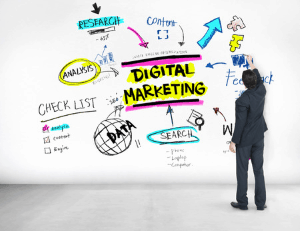 Whether you’re a digital marketer or a business owner who outsources, you’ll want a written digital marketing agreement that will protect your legal rights while making sure both parties understand their respective responsibilities.
Whether you’re a digital marketer or a business owner who outsources, you’ll want a written digital marketing agreement that will protect your legal rights while making sure both parties understand their respective responsibilities.
The Contract Essentials
When putting together your digital marketing contract template that you’ll use repeatedly, here are 10 important issues to address in the agreement.
1. Term. How long will the digital marketing take place?
2. Renewal. At the end of the initial contract term, can the marketing agreement be renewed? If so, how?
3. Cancellation. Can the agreement be canceled early by the digital marketing provider and/or the client? If so, how? Will there be a penalty for early termination?
4. Services. What digital marketing services will be provided per the contract? Be specific as possible.
5. Compensation. When and how will the digital marketer get paid? For example, do specific milestones achieved trigger payment? Or are there monthly or other periodic payments?
6. Warranties. What types of warranties is the digital marketing service provider giving the company for services rendered? Are there specific warranties being disclaimed (e.g. fitness for a particular purpose)? If so, which ones?
7. Intellectual Property. Who owns the intellectual property for the marketing content created? The client or the marketer? If the marketer retains ownership, what type of license is being given to the company for using the content? Will the license terminate when performance ends under the agreement?
8. Governing Law. What state’s laws control if there’s a dispute over the contract? The laws where the marketer is based or the state where the client’s headquarters is located?
9. Dispute Resolution. If there’s a breach of contract dispute that can’t be informally resolved by the parties communicating with each other, how will it be handled? Head to court? Mediation? Arbitration? If there’s alternative dispute resolution, what rules apply? How is the mediator and/or arbitrator(s) selected?
10. Indemnification and Defense. To what extent, if any, is the marketer responsible for indemnifying and defending the client if a third party sues because of services rendered by the marketer (e.g. a copyright infringement lawsuit)?
Where Do You Get A Digital Marketing Agreement?
Don’t borrow someone else’s digital marketing agreement for three reasons.
First, the agreement may be written to favor the other side. If you’re a marketer, you don’t want to be using a contract designed to favor your clients.
Second, if you don’t have consent, “borrowing” the contract can be considered intellectual property theft and lead to a claim of copyright infringement against you.
Third, even if you do get consent, it may not be enough. For example, if a friend gives you a copy of a digital marketing contract for use by you, that friend may not have the legal right to do so. Contracts are frequently owned by attorneys and publishing companies who license their use in exchange for a fee.
If you need a digital marketing agreement, the best place to go is an experienced business contracts lawyer who understands online marketing. If you want Attorney Young to prepare one for you, be sure to check out our firm’s flat fee Business Contract Legal Protection Package.

